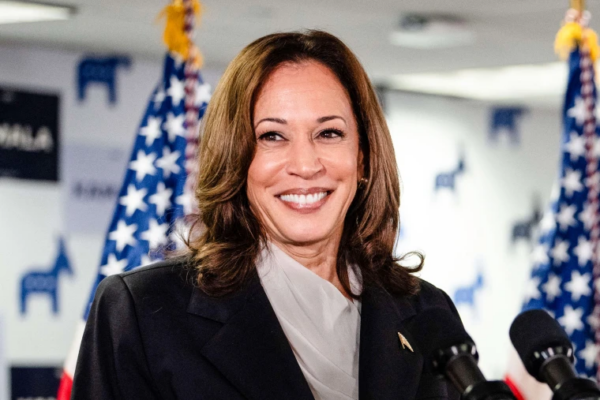features new tax cuts, housing incentives and price caps
Vice President Kamala Harris on Friday will unveil a new set of economic proposals that she would prioritize in her first 100 days in office. The policies aim to lower the cost of groceries and prescription drugs, expand affordable housing and cut taxes for the middle class.
The Democratic presidential nominee will visit the battleground state of North Carolina to deliver her first dedicated policy speech since President Joe Bidenwithdrew from the race in late July, catapulting her to the top of the ticket.
“These bold actions will address some of the sharpest pain points American families are confronting and bolster their financial security,” the Harris campaign said Friday in a fact sheet on the plans.
Groceries and food
In an effort to tackle the stubbornly high price of groceries, Harris will work with Congress to advance the first ever federal ban on “corporate price-gouging” on food and groceries.
This would include setting clear “rules of the road” so that corporations “can’t unfairly exploit consumers to run up excessive corporate profits” on grocery staples, according to the fact sheet.
To investigate and penalize alleged violations, Harris would empower the Federal Trade Commission and state attorneys general.
A Harris administration would also take an aggressive regulatory approach to proposed mergers and consolidation among the biggest food producers.
Affordable housing and rent
Harris’ plan would help cash-strapped renters by blocking data firms from hiking lease rates, and by preventing Wall Street investors from buying homes in bulk to resell at a premium.
Harris will also call for the U.S. to construct three million new housing unitsover the next four years. In order to facilitate that, she will call for new tax incentives for builders who construct “starter homes.”
Any changes to the tax code require congressional approval, and depend heavily on which party controls the House and Senate.
As the supply of entry-level homes expanded, the Harris plan would “provide working families who have paid their rent on time for two years and are buying their first home up to $25,000 in down-payment assistance, with more generous support for first-generation homeowners,” according to the fact sheet.
Healthcare costs
Harris would seek to expand the Biden administration’s landmark $35 price cap on insulin for Medicare recipients to cover insulin for all Americans, not just the elderly.
Similar to her cost-cutting plans for the food industry, Harris’ healthcare policy relies in part on stiffer regulations and strict anti-trust enforcement.
The plan calls for “cracking down on pharmaceutical companies who block competition and abusive practices by pharmaceutical middlemen,” according to the Harris campaign.
Tax cuts
Restoring the expanded child tax credits that were first introduced during the Covid pandemic is a longstanding goal of the Biden administration, and one that Harris will take up if she is elected president.
She will also go one step farther, and propose expanded tax relief of up to $6,000 for families with a newborn.
The Harris campaign calls this a “year when many family’s expenses are highest—with cribs, diapers, car seats and more.” It also notes that many parents who do not have access to paid leave are forced to choose between spending time with their baby and working enough hours to make ends meet.
The stakes
After just three weeks on the campaign trail, Harris has erased the polling advantage that former President Donald Trump held over Biden.
But the vice president has largely steered clear of policy specifics, choosing instead to draw contrasts with Trump.
The Tar Heel State address will give her an opportunity to articulate a vision for the economy that builds on — and potentially pivots away from — parts of the Biden’s administration’s economic record.
On Thursday, Harris and Biden appeared together in Maryland to tout an agreement with drugmakers to lower the cost of the 10 priciest prescription drugs under Medicare.
The landmark negotiations — enabled through Biden’s centerpiece spending legislation, the Inflation Reduction Act — will lead to around $6 billion in net savings for Medicare when they officially go into effect in 2026, according to the government.
The vice president’s speech comes just two days after Trump gave his own economy-focused speech in North Carolina.
Speaking in Asheville, Trump fired off personal attacks at Harris while blaming her for the high consumer prices that Biden has spent much of his presidency working to reverse.
CNBC


Leave a Reply
You must be logged in to post a comment.